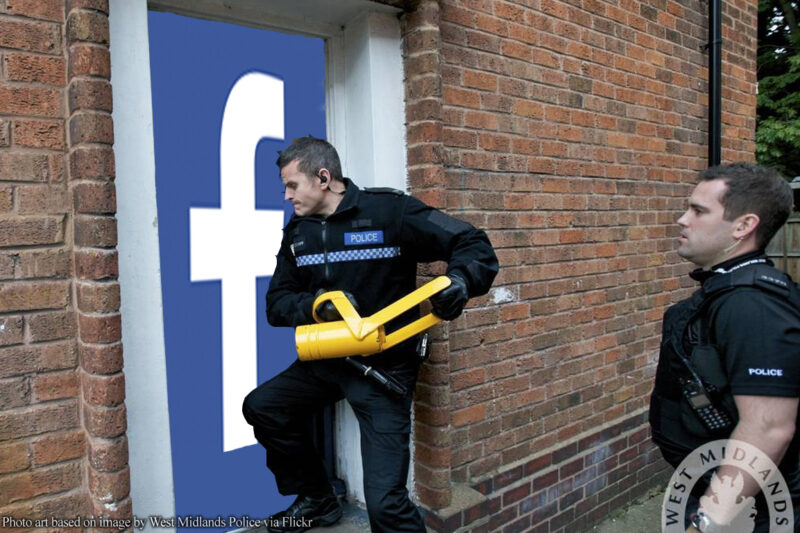Government Should Not Be Able to Block Facebook From Telling People About Searches


If the government wants to search your Facebook account—snooping through everything from your posts, photographs, and videos to your private messages, check-ins, likes, and search history—shouldn’t you know about it in time to protect your constitutional rights? We certainly think so. And that’s what we told the D.C. Court of Appeals last week when we filed a friend-of-the-court brief in a largely secret case concerning the government’s search of Facebook accounts.
In practice, the targets of electronic searches of Facebook accounts and similar data often don’t learn about them until months after they have occurred and the materials have already been handed over to the government. That’s because the government regularly obtains gag orders to prevent Internet companies like Facebook from notifying their users about government searches of their data. In our brief, which we filed together with the ACLU of DC and Public Citizen, we argued that, absent an overriding government interest in secrecy, the government should not be allowed to block Facebook from notifying its users about the search warrants targeting them.
The case is entirely sealed, save for a three-page public notice drafted by Facebook announcing its effort to lift the gag order and calling for friend-of-the-court briefs in support of its position. From that notice, we know that the government issued search warrants to Facebook demanding “all contents of communications, identifying information, and related records” over a three-month span for three accounts. Along with the warrants, Facebook received a gag order that prohibits the company from telling the targets of the search about the warrants.
That gag order was issued under the same statute that Microsoft is challenging in a separate case, and for good reason. Microsoft has said that, of the more than 5,000 federal demands for customer data it received over 18 months, almost half came with gag orders—and most of those were indefinite, resulting in an alarming number of secret searches.
To our knowledge, Facebook has not challenged the warrants themselves in the D.C. case, but it has argued that the accompanying gag order is unconstitutional. A lower court limited the gag so that it would expire 30 days after Facebook produced the records to the government. Laudably, Facebook refused to accept that limitation and appealed the order, arguing that notice should not be delayed because 1) the events underlying the investigation are public, 2) the search targets anonymous political advocacy and speech, and 3) Facebook has already retained all of the relevant records, which means that the subjects of the search can't destroy them when they receive notice.
Given the limited facts presented, it is hard to imagine how these warrants can be lawful. The government’s demand for “all contents of communications” over a three-month period is extraordinarily broad. It almost certainly defies the Fourth Amendment’s requirement that a search warrant describe with particularity what the government may search and seize, especially where the search targets materials protected by the First Amendment and threatens to unmask anonymous speakers. The warrants at issue in this case would allow government investigators to examine the targets’ communications with an untold number of Facebook users, including family members, romantic partners, and political allies. They would also reveal the targets’ political affiliations, reading habits, and their views on everything from politics and religion to movies and television shows.
The Constitution exists to prevent such harms, but it can do so adequately only if targeted users know their rights are in jeopardy. The users are in the best position to show how the warrants infringe their constitutional rights—and to do so before production to the government brings about the very harms the First and Fourth Amendments are meant to stop, including unwarranted invasions of privacy, unmasking of anonymous speakers, and chilling of protected speech. Without a convincing reason for secrecy, the government should not be allowed to prevent Facebook from telling its users that their accounts are being searched. We hope the D.C. Court of Appeals agrees.



